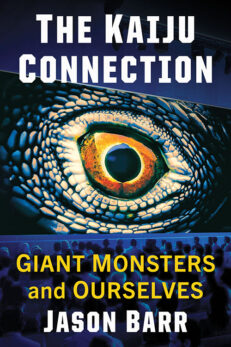Villainy in Western Culture
Historical Archetypes of Danger, Disorder and Death
Original price was: $29.95.$19.99Current price is: $19.99.
In stock
About the Book
Every society has its lineup of wicked, unethical characters—real or fictional—who are regarded as villainous. This book explores how Western societies have used villains to sort insiders from outsiders and establish behavioral norms to support harmony and well-being. There are three parts: nature and “barbarians” as sinister “others” bent on destroying Western civilization; tyrants, traitors and “femmes fatales” as challenges to ideals of legitimate governance, patriotism and gender roles; and gangsters, grifters and murderers as models of evil or unprincipled behavior. The author also discusses two related phenomena: the dramatic paring down of what is considered villainous in the West, and the proliferation of over-the-top villains in pop culture and mass media. Instructors considering this book for use in a course may request an examination copy here.
About the Author(s)
Bibliographic Details
M. Gregory Kendrick
Format: softcover (6 x 9)
Pages: 272
Bibliographic Info: notes, bibliography, index
Copyright Date: 2016
pISBN: 978-0-7864-9868-0
eISBN: 978-1-4766-2533-1
Imprint: McFarland
Table of Contents
Acknowledgments vi
Introduction 1
Part One. Drawing Lines in the Sand: The Villain as “Other” 7
1. “Red in tooth and claw”: The Villain as Nature 11
2. Sybarites and Savages: The Villain as Barbarian 33
Part Two. Tyrants, Traitors and Tramps: The Villain as Agent of Discord and Disorder 59
3. “One who rules without law”: The Villain as Tyrant 64
4. “Et tu, Brute?”: The Villain as Traitor 101
5. “Her arms are wicked and her legs are long”: The Villain as Femme Fatale 139
Part Three. The Bad Seed: The Villain as Pathology 179
6. Gangsters and Grifters: The Villain as Sociopath 183
7. Rippers and Rapists: The Villain as Psychopathic Murderer 211
Epilogue. Marplots and Madmen: The Villain as Metaphor 234
Chapter Notes 241
Bibliography 252
Index 259
Book Reviews & Awards
“The coverage is wide here, and it is dealt with seriously”—Communications Booknotes Quarterly





